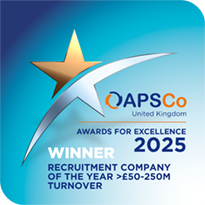IR35 has hit the news channels again recently, but this time it’s been no surprise. Critics were quick to point out an unfair double taxation impact when plans first began to extend IR35 into the Private Sector.
Now thanks to continued campaigning, HMRC have announced a consultation which will look for the best option to resolve the tax burden that is seeing tax paid twice where an off-payroll status is overturned, with a full review expected in the coming months.
What’s the issue?
Where HMRC identifies that the company (known under IR35 as the end client) has made an error in determining the status of a worker, they become liable for the income tax and national insurance contributions that the worker should have had deducted.
What’s currently happening however is that the full income tax and national insurance bill needs to be paid by the company, which doesn’t take into account that the Limited Company worker will have already paid corporation tax on the earnings from the assignment. Which campaigners say should be deducted from the company’s liable income tax and national insurance bill, to avoid tax being reclaimed twice in part.
Is change going to happen?
That’s what HMRC’s consultation will determine – but they have accepted that this creates a double taxation dilemma where they deem IR35 did apply to an assignment that was treated as off-payroll at the time.
Their consultation will look at taxes that have already been paid by the individual and/or their intermediary, to determine the fairest course of action moving forward to update the legislation. Any decisions made will be met with an expectation that they’ll be backdated to when IR35 first came into force in April 2017.
What should companies do?
Hold tight, as usual you can expect an initial consultation, and then sometime before the legislation amendments may come into place. Following the 8-week consultation period a response will be issued from the Government, expected later in the year. With changes potentially not coming into effect until the next tax year in April 2024.
If you’ve had any instances where HMRC have challenged and overturned any out of scope IR35 assignments, determining them inside scope, then it’s important to identify how much income tax and national insurance has been paid to HMRC in relation to these in readiness for identifying any overpayment should the change be backdated.
Looking to prepare yourself for a potential HMRC enquiry?
We know that after looking at tech companies, HMRC are now turning their attention to the construction sector to check for IR35 compliance. With HMRC contacting several construction companies to notify them that they are opening an enquiry to check that the off-payroll rules are being applied correctly.
Through their enquiry they’ll be looking at the company’s hiring processes that identify the worker’s status determination for assignments, and compliance throughout the supply chain – whether workers are directly engaged or contracted through an agency or labour provider.
If you’re looking for support to assess the effectiveness of your IR35 processes, then our sister company Linx are specialists in IR35 and workforce management. They develop bespoke supply chain audits around your business operations – that are designed to check how consistently key employment legislation such as IR35 is managed across your supply chain.


.png)


.png)


